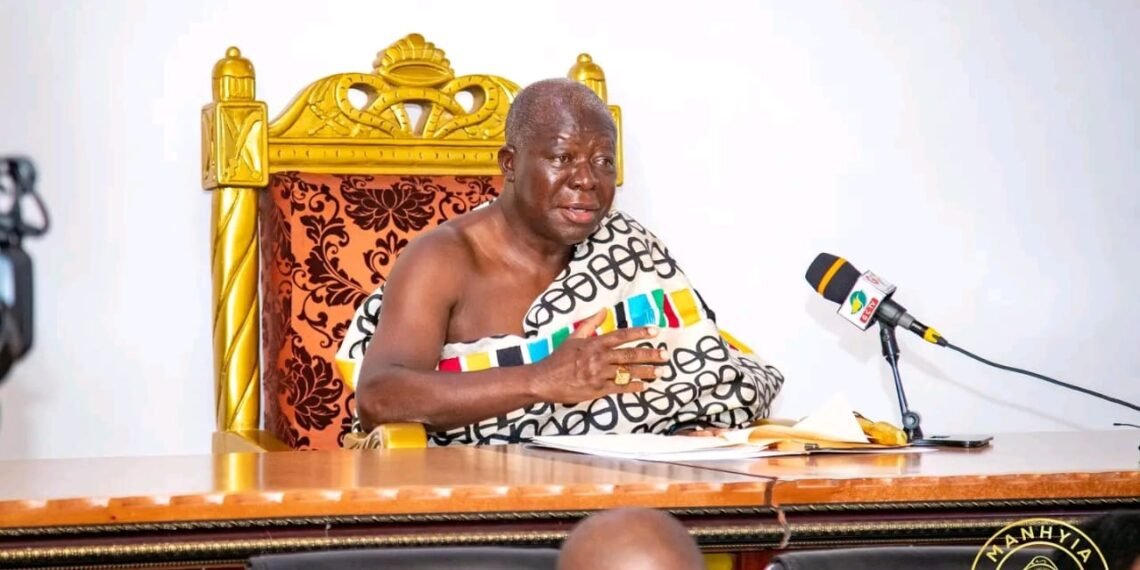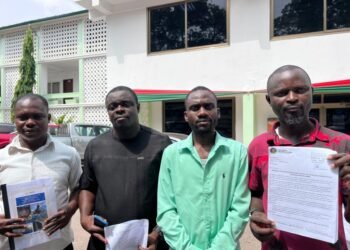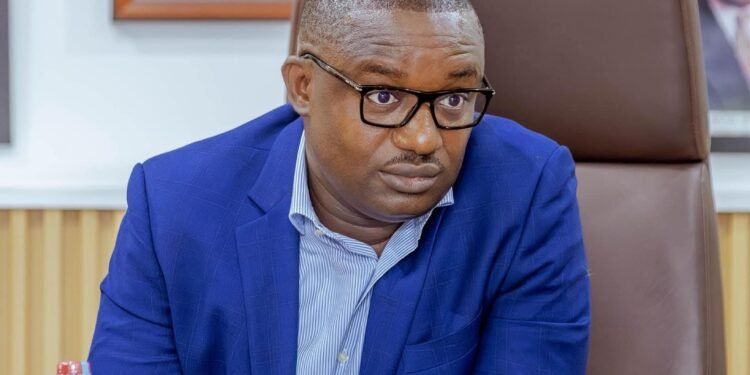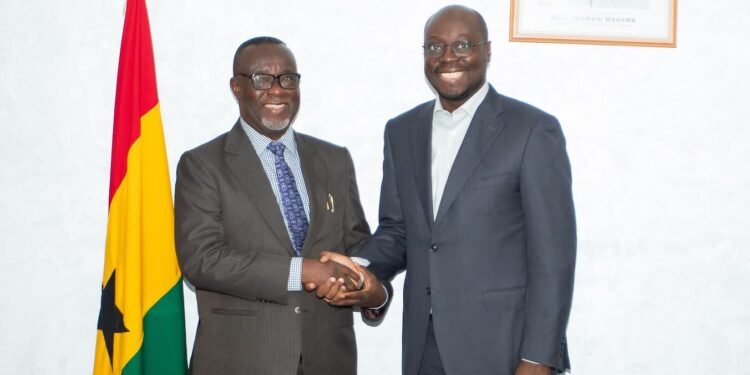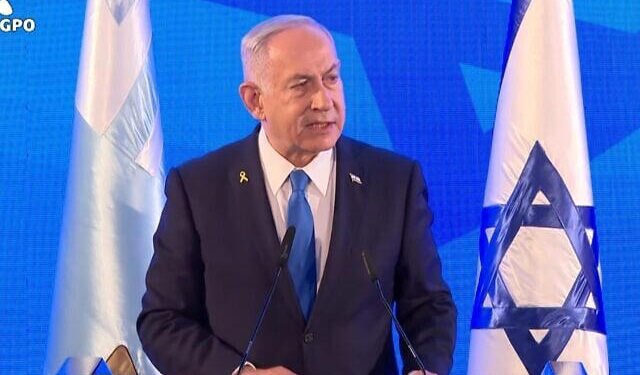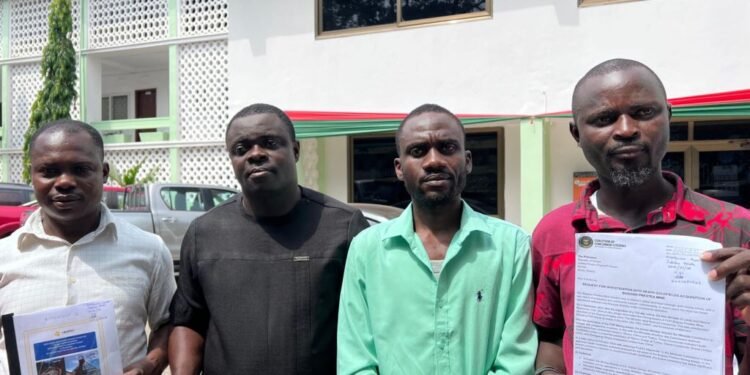The Asantehene, Otumfuo Osei Tutu II, has urged members of the Ashanti Regional House of Chiefs to mount a strong case for a constitutional review of laws vesting mineral rights solely in the President.
Speaking during an engagement between the House of Chiefs and the Minerals Commission on proposed amendments to the Minerals and Mining Act, the Asantehene described the current legal framework as a historical injustice that continues to sideline traditional authorities from their ancestral lands’ wealth.
“If we want to change mineral ownership, we will have to make a strong case at the constitutional review committee. We watched on for them to draft a constitution that didn’t favor us.”
Otumfuo Osei Tutu II, Asantehene
He pointed specifically to Section 6 of Article 257 of the 1992 Constitution, which vests ownership of mineral resources in the President on behalf of the state.

“When they were giving the Obuasi mine out, the Asantehene was in exile at Seychelles Island, and they took it for a hundred years.
“When we had an opportunity to change things after the expiration, we couldn’t do anything.
Otumfuo Osei Tutu II, Asantehene
Otumfuo added, “We should be worried about the constitution,” reflecting on missed opportunities to secure equity for traditional authorities.
The Asantehene’s comments come amid growing debates over the role of chiefs in Ghana’s mineral resource governance and calls for a more equitable share of benefits from mining activities.
He emphasized that it was time traditional authorities pushed for stakes in mineral reserves rather than settling for royalties.
Revisiting the Minerals and Mining Act

The Minerals Commission and the Ministry of Lands and Natural Resources have been engaging Regional Houses of Chiefs across the country to solicit input on proposed revisions to the Minerals and Mining Act.
The Commission said the review is aimed at improving the benefits of mining to local communities and strengthening regulatory oversight.
One of the key proposals includes mandating mining firms to allocate one percent of their gold sales revenue for the development of catchment communities.
According to the CEO of the Minerals Commission, Michael Ayisi, this provision could generate significant funding for local projects.
“From my calculations, Ahafo Newmont sold $1.2 billion worth of gold in 2024. One percent of that amount should give the community $12 million.
“That is huge. The companies accepted it when we proposed it to them.”
Michael Ayisi, CEO of the Minerals Commission
The review also proposes a cap on prospecting licenses, which are currently granted in perpetuity but would be limited to seven years and subject to renewal.
Additionally, the new law seeks to eliminate “development agreements” that allow companies exemptions from certain taxes and levies.
“So far, three companies hold the agreement. After giving them the concession, we waived some taxes and fees for them as well.
“In 2023, they didn’t pay a stabilization levy to the government.”
Michael Ayisi, CEO of the Minerals Commission
The revised act would also stipulate how the government takes ownership of immovable properties once mining operations cease.
Empowering Traditional Authorities

A significant change in the proposed review is the inclusion of traditional authorities in decisions regarding the granting of mining licenses. Under the current system, chiefs are often excluded from such processes despite being custodians of the land.
Deputy Minister for Lands and Natural Resources, Sulemana Yusif, acknowledged this gap. “The current system often sidelines the custodians of the land in decisions that affect their communities,” he said.
“We believe that no mineral rights—whether small, medium, or large-scale—should be granted without full involvement and consultation with the traditional authorities.”
Hon. Sulemana Yusif, Deputy Minister for Lands and Natural Resources
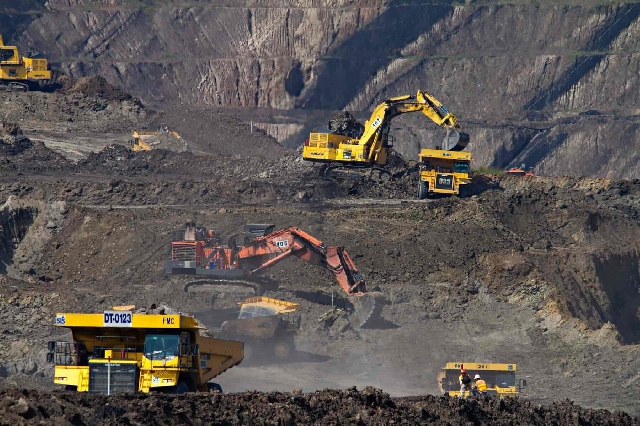
The revised act is also expected to promote cooperative mining schemes that allow local groups, under the guidance of chiefs, to own and manage mining ventures. “The profits will directly fund community developments,” the Deputy Minister said.
Currently, mining leases are granted for 30 years, but under the new proposals, the period would be reduced to a maximum of 15 years to enhance regulatory flexibility and ensure communities benefit more promptly from mining activities.
For Otumfuo Osei Tutu II, the proposals are a step forward but insufficient if traditional authorities remain relegated to token roles in mineral resource management.
He insisted that chiefs must claim their rightful place as stakeholders, not bystanders, in Ghana’s extractive sector.
As consultations continue, all eyes will be on how the review process balances the interests of the state, investors, and local communities, with chiefs pressing for a seat at the decision-making table.
Read Also: Banking Sector Shakeup: Five Ghanaian Banks Under Intense BoG Scrutiny Over Capital Failures

